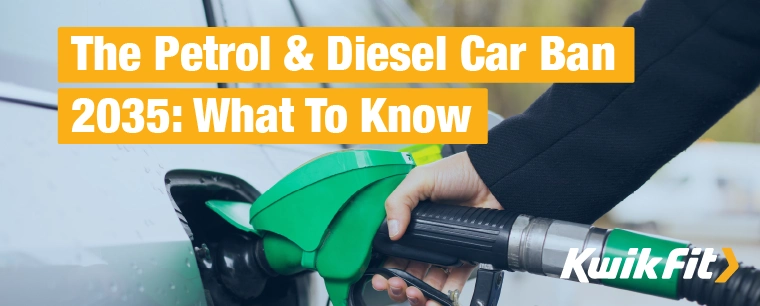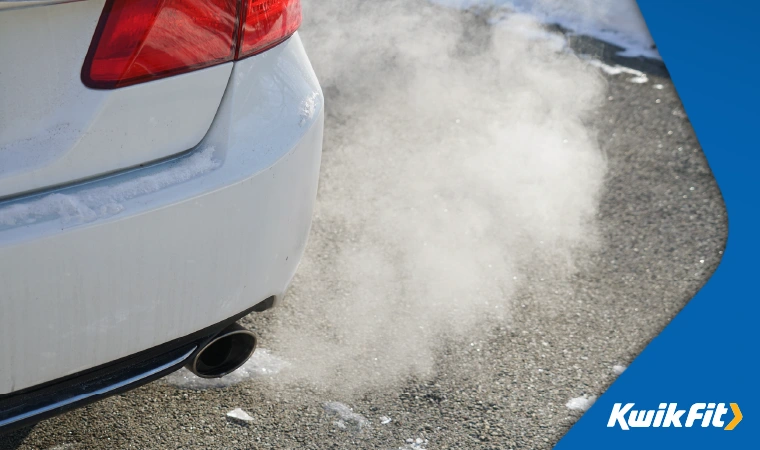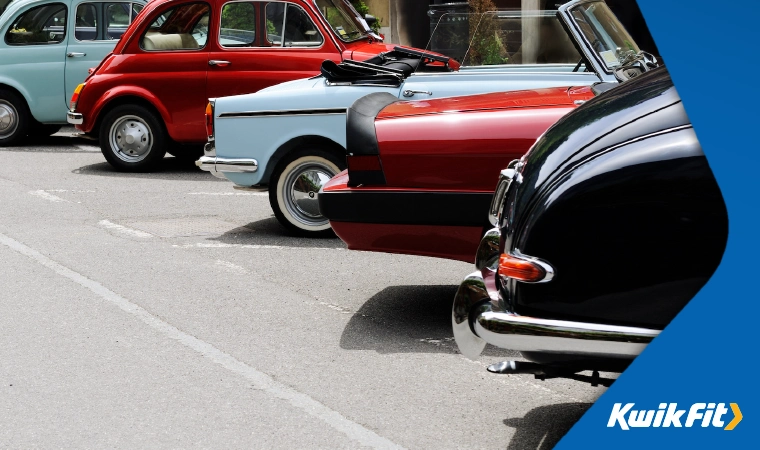The Petrol & Diesel Car Ban 2035: What To Know
Jack Dreyer | Monday 13th November 2023 8:00am

If you’ve been keeping up to date with the news over the past few months, you’ll have likely seen the update regarding the ban on the sale of new petrol and diesel cars.
As of August 2023, the proposed ban (previously set to come into action in 2030) was pushed back by five years to 2035.
The government’s initial commitment to ensuring greener travel seemed like a promising step towards the wider goal of getting the UK to Net Zero emissions by 2050. However, this pushback feels, to some, like a step in the other direction — or at least a side step — with many drivers confused about what it means for the future of fuel and new car purchases.
Consider this blog your guide to the updated petrol and diesel car ban date as we dive into the implications this change has for drivers across the UK.
The headlines from the petrol & diesel car ban
With the announcement of the ban, then its delay, and all the press and speculation that followed, the actual terms coming into force seem to have been forgotten a bit. So, here’s what’s being proposed:
- A ban on the sale of new petrol and diesel vehicles from 2035
- A ban on the sale of new hybrid and plug-in hybrid vehicles from 2035
- Petrol and diesel cars are still legally allowed to be driven from 2035
- Fuel for petrol and diesel cars is still legally allowed to be purchased from 2035
- Second-hand petrol and diesel cars are still allowed to be purchased from 2035
Now that that’s clear, let’s take a look at the reasons behind the ban being postponed and answer some more specific questions below.
Why was the petrol & diesel car ban postponed?
When the Prime Minister announced the delay on the petrol and diesel car ban, he gave a list of reasons — most of which involved concerns about the financial expectations placed on the public by issuing such a ban in a cost of living crisis.
High costs, concerns relating to practicality for small businesses, and a lack of electric vehicle charging infrastructure across the nation were also cited as motives for moving the ban back by five years.
The Prime Minister defended his decision as a sensible one more aligned with realistic Net Zero goals on multiple occasions. To quote Rishi Sunak directly, “there's nothing ambitious about simply asserting a goal for a short-term headline without being honest with the public about the tough choices and sacrifices involved [...]. The Climate Change Committee has rightly said, you don't reach net zero simply by wishing it yet. That's precisely what previous governments have done”.
What do drivers think of the ban delay?
It’s true that, for many drivers, switching to an electric vehicle by 2030 may not have been financially feasible. Looking into this further, Kwik Fit carried out some research about driver attitudes towards purchasing EVs and found the following:
- In the week prior to Rishi Sunak’s announcement that the ban would be pushed back from 2030 to 2035, 42% of drivers planning to buy a new car said they expected it to be a low emissions vehicle. But, following the announcement, Kwik Fit’s researchers found that the proportion planning to opt for a low emissions vehicle has now dropped back to 38%.
- The figures indicate that the number of car buyers planning to choose an EV or hybrid has dropped by more than two million since the ban has moved from 2030 to 2035.
Will the ban delay be permanent?
It seems that some parties are unhappy with the ban being moved back and are calling for it to be reinstated with its original deadline of 2030. Environmental campaigners are not pleased and the Labour party have committed to reversing the decision if they win the general election. In fact, according to our research, 49% of drivers believe that the decision to delay the ban will make it harder for the UK to meet its carbon emission targets.
Interestingly, the 2035 ban is actually relatively aligned with similar bans across Europe. In the meantime, it looks as if the delay to 2035 is here to stay.

When will all new cars in the UK be electric?
As much as the changes to the ban on non-electric vehicles affect consumers and drivers, it also has a huge impact on the schedules and outputs of manufacturers.
Despite the ban on new petrol and diesel cars being pushed back, some manufacturers have already committed to going fully electric before that date. In this section, we take a look at some of the manufacturers that had already planned to move away from internal combustion engines in their design.
While most are on track to meet the original 2030 deadline, a study from This Is Money has revealed that many manufacturers will be going fully electric well before then — and some after.
- Tesla, Polestar, and Smart Car are already all-electric, while DS Automobiles will join them in 2024 — shortly followed by Jaguar in 2025, Alfa Romeo in 2027, and Vauxhall in 2028.
- As for the rest of the manufacturers that will meet the original deadline of 2030, there are Bentley, Fiat, Ford, Lexus, Peugeot, Renault, Rolls Royce, Mercedes, Mini, Volvo, Nissan, and Jeep.
- Lastly, Volkswagen, and Audi aim to be all-electric by 2033, while Hyundai, Kia (2035), and Honda (2040) bring up the rear.
What will happen to classic cars when petrol is banned?

We understand the concern of classic car drivers regarding the future of their vehicles. However, a common misconception about the petrol and diesel car ban is that petrol and diesel themselves will be banned — and this is not the case.
When will petrol stop being sold?
The ban coming in 2035 has to do with the sale of new cars that use petrol and diesel as their source of fuel. For any existing, second-hand, or classic vehicles, nothing will change. Since second-hand cars with internal combustion engines can still be sold and driven, petrol will still be available and will not, at least in the near future, be ‘banned’ as a fuel source.
Will petrol still be available after 2040?
Similarly to the above, it is important to understand that, although the cars running on petrol (or diesel) will no longer be available to buy new from the garage, you can still drive them and purchase them second hand.
Depending on how well you maintain your vehicle, it could last you decades. So, as long as there are still petrol and diesel cars on the road, there will still be petrol stations. The only difference is, that they might look a little different in 2040 to cater for the expected increase in electric vehicles.
When will petrol and diesel cars be banned?
Looking further ahead, beyond the sales ban of new petrol and diesel cars, it is tempting to think about whether these vehicles will ever be banned outright.
On this, we’re inclined to say ‘no’. While there may well be certain restrictions and taxes imposed onto congested areas (such as the ULEZ in London and other major cities), it is unlikely that the government will prevent these cars themselves from being outright banned — otherwise, this would have to extend to classic vehicles and other forms of transport too.
Are diesel cars still being made?
The short answer is yes. The more accurate answer is yes, but not for much longer. Diesel cars have always been popular and will continue to be made by some manufacturers right up until the ban in 2035. However, beyond this point, the UK government has banned the production of new diesel vehicles — in line with similar bans across Europe. So, the end is near for diesel cars.
If you prefer this vehicle type, you can still buy them second-hand. However, depending on the age and engine type of the car, you may be subject to charges and restrictions from things like the ULEZ.
Will petrol cars lose value?
Now that the ban has been pushed back by half a decade, this question is likely to feel less pressing for drivers of petrol cars. However, it is worth bearing in mind that, like diesel cars, there is a limited future for petrol vehicles — and one that we can potentially predict the outcome of.
It’s likely that, in the few years immediately after the car ban comes into play 2035-40, the value of vehicles with internal combustion engines may decline due to the running costs increasing. However, looking years ahead, as the number of petrol cars on the road dwindles (and maybe models become too costly to repair), the cars left behind may be seen in the same way as we view classic cars, potentially gaining value.
Keep your car on the road for longer
Regardless of whether you drive a diesel, petrol, hybrid, or fully electric car, there is one way to guarantee it stays on the road for longer — and that’s through regular, proper maintenance.
To keep your vehicle in good working order, book in for regular servicing at your local Kwik Fit. Or, contact our team to discuss the range of free safety and performance checks available. In the meantime, keep up to date with all the latest motoring advancements and policy changes using the Kwik Fit blog.
Any facts, figures and prices shown in our blog articles are correct at time of publication.
Featured Articles
Wet Weather Driving Tips – Staying Safe in the Rain
Friday 29th November 2024
Driving in heavy rain can be tricky and bring extra risks. Check out our guide for top tips to stay safe and avoid breakdowns if travelling in wet conditions.
Your Ultimate Winter Driving Checklist
Wednesday 27th November 2024
Driving in the colder months presents many challenges. Breakdowns are far more common in winter, so make sure you’re prepared with these essentials.
Is Your Car Battery Ready for Winter?
Monday 11th November 2024
Is the UK on the verge of ‘the coldest winter for 50 years?’ Even if El Niño doesn't hit the UK this winter, reduce the risk of a winter breakdown by making sure your car battery is winter-ready.









